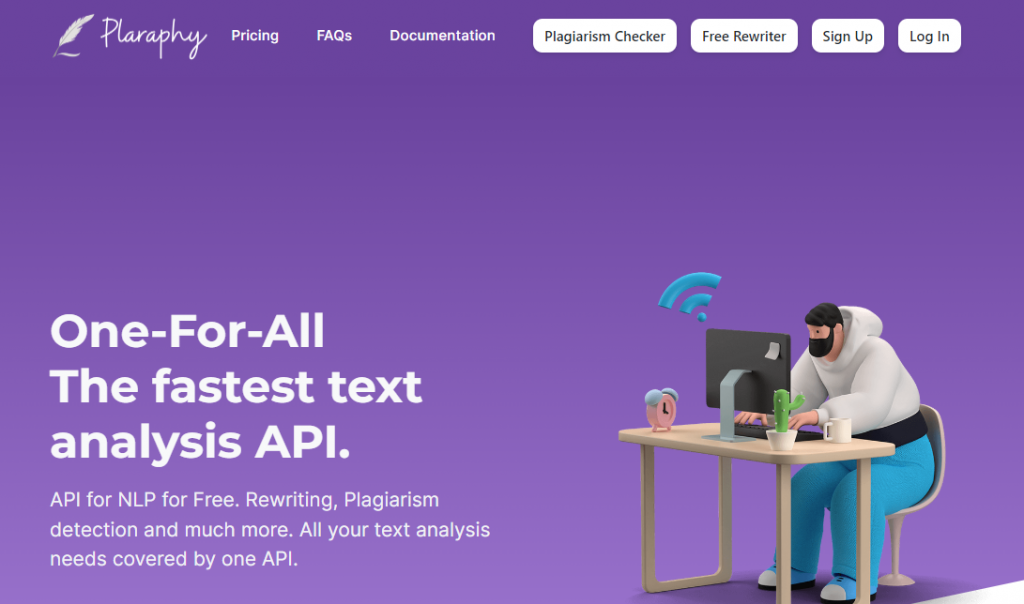If you want to introduce a plagiarism detector API on your website, in this article, we explain why and how to do it.
Plagiarism is the act of representing someone else’s ideas as our own. This holds for both artistic and scientific endeavors, as well as literary ones. Only a trained eye can recognize plagiarism since it might be subtle and expertly concealed. On the other hand, it may be so blatant that ideas that have been developed by others are simply copied without modification.

It is strongly unrespectful to copy and paste written papers. We learn to not copy and paste in our academic instruction, especially from the Internet, starting from the basic levels. This is true because it demonstrates how lazy the individual is, choosing the simplest path to success with the least amount of work.
Unfortunately, this approach seriously harms someone’s reputation since it exposes their lack of ethics in their daily conduct. Some businesses even employ automatic technologies to find plagiarism.
The aforementioned programs vary in their degree of accuracy. They use distinct algorithms and detecting strategies. However, in general, it is simple to spot straight plagiarism from the internet. To check if a piece is a verbatim duplicate, simply copy and paste a few lines into a search engine.
Search Engine Optimization And Plagiarism (SEO)
You’re probably familiar with search engine optimization as a marketer (SEO). You could even be in charge of developing the SEO strategy for your business, which aims to improve the position of your website in Google searches and increase the volume of relevant traffic—and leads—to your pages.
Nothing that might harm your rankings must affect any of the material you upload if you want an SEO plan to succeed. Plagiarism is one of the worst offenders. Once search engines have identified your copied material, you can have a punishment right away. As a result, your ranking declines, damaging your business in several ways and driving up the cost of SEO.
For instance, Google elevate excellent original material to the top of search results. The opposite will be true if people believe your work to be stolen or plagiarized. There is yet more, though.
With plagiarism, you risk losing your audience’s trust and loyalty. In addition, you can recieve punishment by search engines. Simply said, readers and visitors to your website won’t be interested in doing so anymore.
Use A Plagiarism Detector API
As you will see, to have optimal results in the generation of content, it is extremely important to pay attention to its authenticity. For this reason, it is necessary for people to constantly review and correct their writings.
In this sense, it will save you to be completely original when writing, both in the content that you include and in the ways of treating it. Another important issue to take into account is the handling of information, and that your north when writing is in the message you want to give. In this way, you will make more of an original text, and less of a collage of data.
However, you must use the most advanced resources to get an idea of the originality of your text. This is because millions of pieces of content are generated on the web every day and you can’t be aware of all of them. That’s why you should use a Plagiarism Detector API like Plaraphy. A type of response of the same would be like this:


Why Plaraphy?
This plagiarism detector API is extremely necessary for all people who want to succeed with an SEO strategy on the internet. For this, Plaraphy has several tools that you can seamlessly integrate into your digital media.
There you can include the detection of emotions in texts, paraphrasing, and more. You will be able to integrate all the operations you want in the programming language that you use the most since the API responds to several of them.

